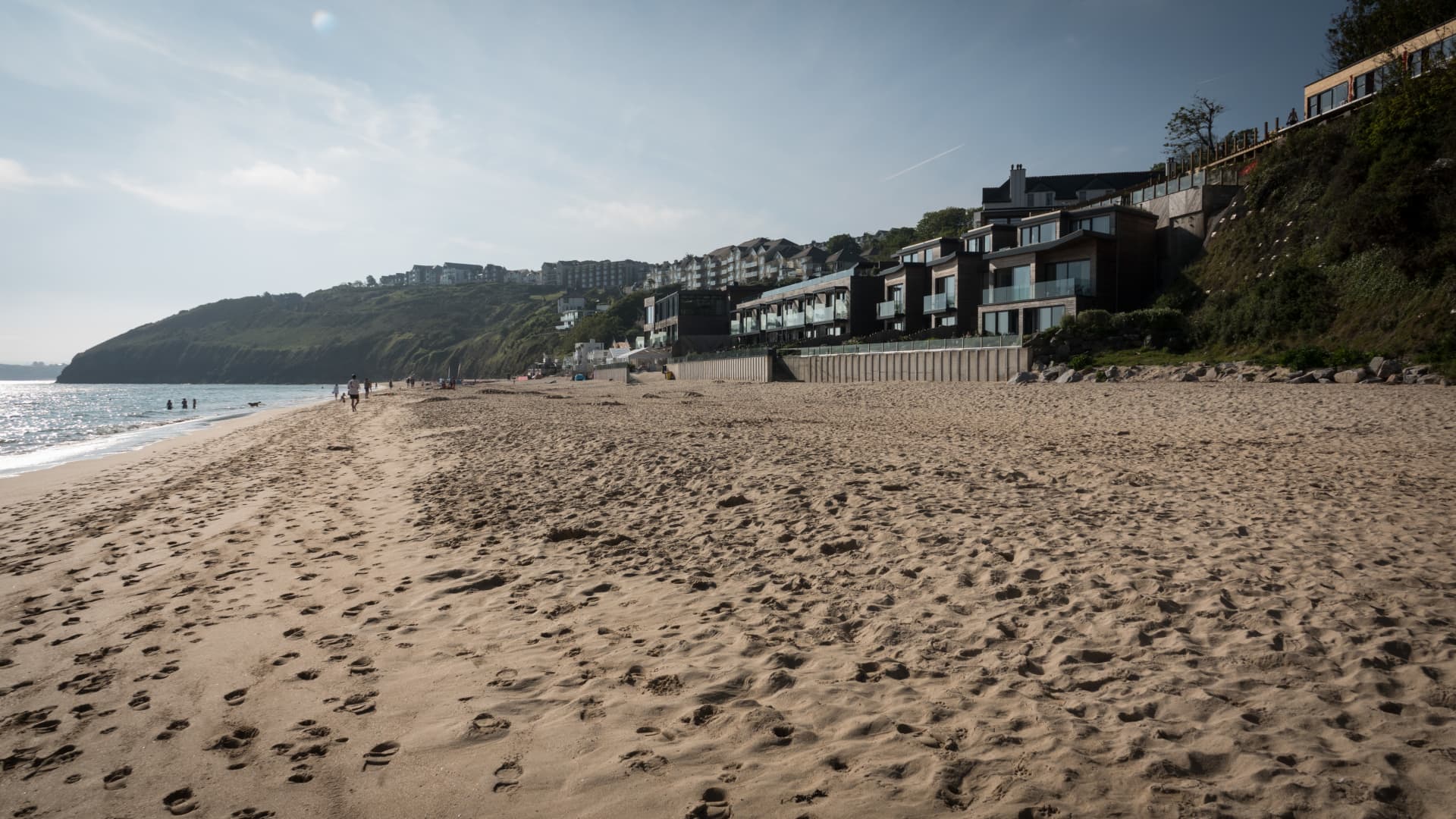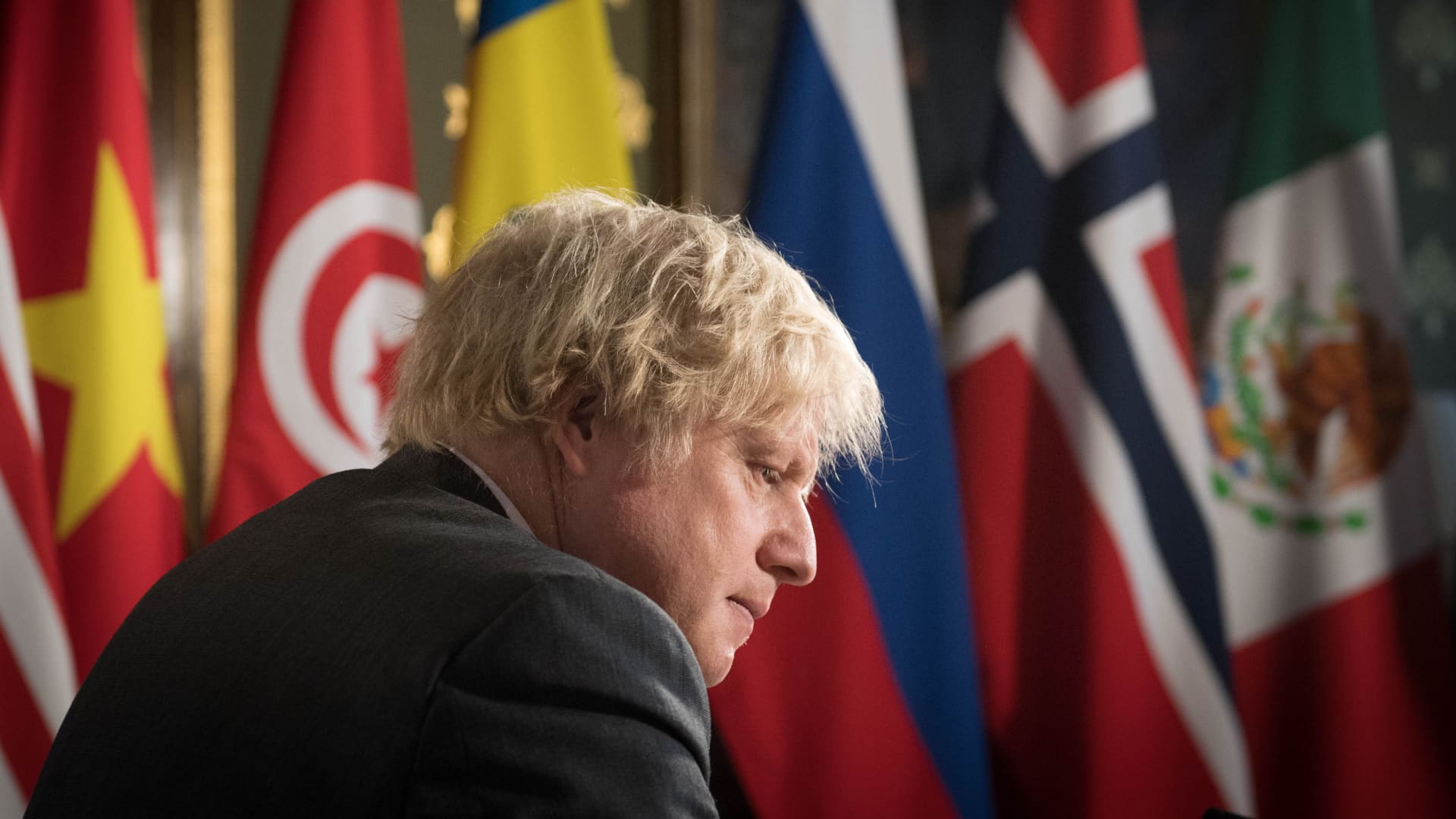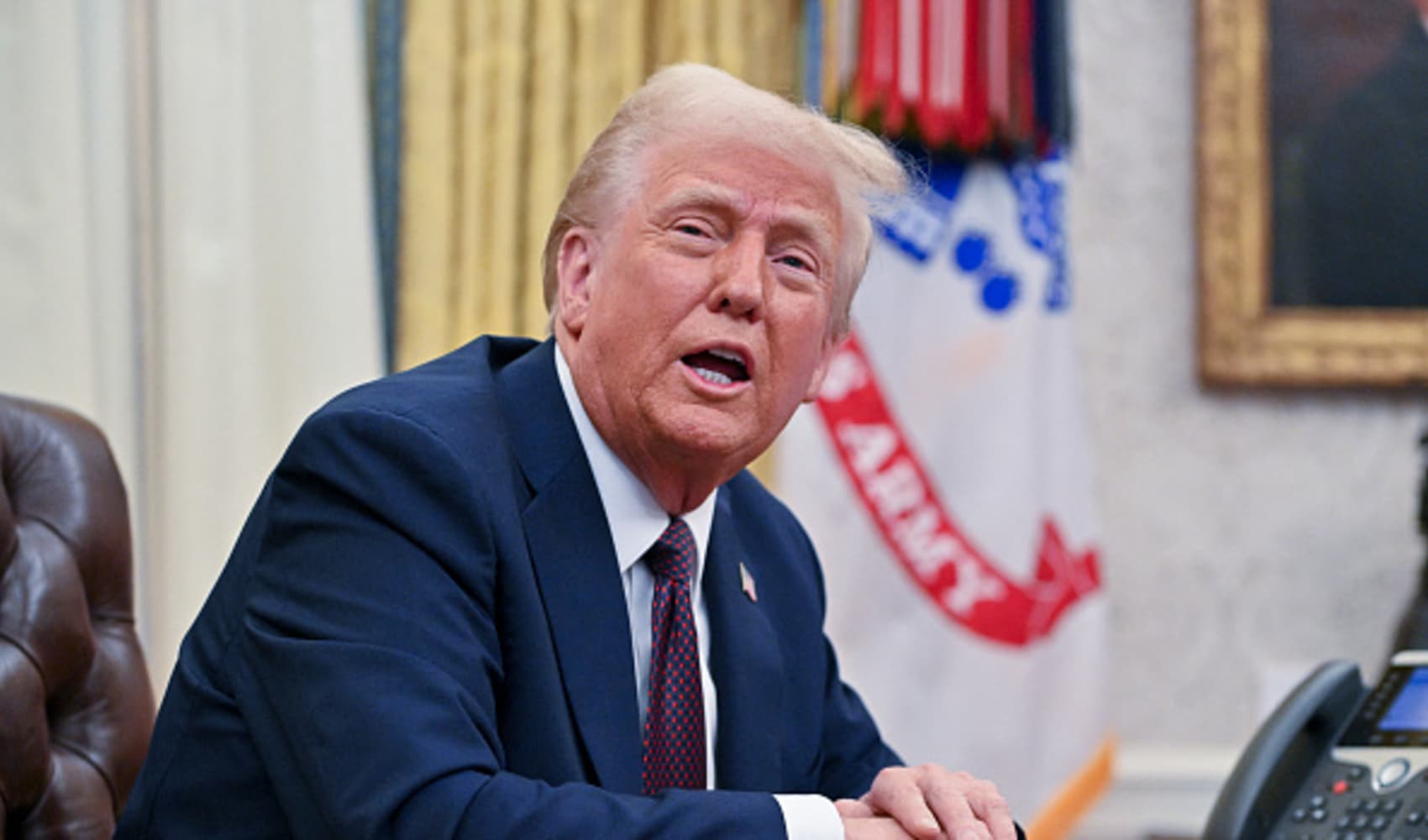
Campaign group Avaaz create a giant beach sand artwork depicting the faces of the G7 leaders alongside a message written in the sand reading “Share the Vaccine, Waive the Patents”, at Watergate Bay Beach, Newquay, Britain, June 10, 2021.
- The leaders of the Group of Seven are about hold a three-day summit in the U.K.
- The climate, trade and the recovery from the coronavirus, as well as Russia and China, are expected to be on the agenda.
- CNBC has a quick guide to everything you need to know about the summit.

LONDON — The leaders of the Group of Seven economies are about hold a three-day summit in the U.K. with climate change, the economy, the coronavirus pandemic and geopolitics set to be major talking points.
CNBC has a quick guide to everything you need to know about the summit:
Get top local stories in Connecticut delivered to you every morning. Sign up for NBC Connecticut's News Headlines newsletter.
What's going on?
From Friday to Sunday, the leaders of seven of the world's most advanced economies will meet in Cornwall, in the southwest of England.
The leaders will discuss shared challenges, from the pandemic and vaccines to climate change and "ensuring that people everywhere can benefit from open trade, technological change and scientific discovery," according to the U.K. government.
It's the first in-person G-7 summit in almost two years. Britain wants "leaders to seize the opportunity to build back better from coronavirus, uniting to make the future fairer, greener and more prosperous."

Who will be there?
Money Report
The big names at the summit are undoubtedly the leaders of the G-7, which is made up of the U.K., Canada, France, Germany, Italy, Japan, and the U.S. The EU, which sends the presidents of the European Commission and the European Council, also attends.
The summit is seen as one of the few forums where the world's most influential societies and advanced economies are brought together for close-knit discussions.
This year, Australia, India and South Korea have been invited to attend as guest countries and "to deepen the expertise and experience around the table," the U.K. government said.
The leaders attending the summit represent over 60% of the people living in democracies around the world, representing over 2.2 billion people and over half of the world's economy.

Where is it?
The U.K. is hosting the summit because it holds the rotating presidency of the G-7. This year's meeting is taking place in the coastal town of Carbis Bay in Cornwall, the most southwestern region in England and a popular vacation destination for Brits.
G-7 leaders will meet at the Carbis Bay Hotel & Estate with security at the location and the surrounding area as tight as you would expect for global leaders. A high-security zone has been put in place around the hotel and the perimeter of Tregenna Castle, where G-7 leaders will be staying, with concrete barriers and armed police on guard.
Whole streets in Carbis Bay and nearby St. Ives have seen security fencing erected and an influx of police, with more than 5,500 officers deployed to Carbis Bay and St. Ives. Search and safety checks, as well as widespread security fencing blocking off entire streets, have led to some disgruntlement among locals who say they've been "caged," local media reports.

Despite the beautiful coastline and countryside that will act as the backdrop to the gathering, Cornwall is one of the poorest regions in the U.K. and is heavily reliant on agriculture and seasonal tourism.
Unemployment more than doubled in the region during the pandemic, and the U.K. government has pledged millions of pounds' worth of long-term investment in the region as part of a G-7 legacy. It's hoped the high-profile event and increase in future tourism will lead to an economic boost of around £50 million ($70.5 million) for Cornwall.

What are the talking points?
The U.K. is hosting the G-7 at a critical time for the world as major economies try to vaccinate their way out of the pandemic and return to addressing other crucial and pressing matters, such as promoting free trade and fighting climate change ahead of the COP26 U.N. Climate Change Conference in November, which the U.K. will also host.
At the 2021 G-7 summit, the U.K. hopes to unite the group under the "build back better" slogan following the end of the Covid-19 pandemic. It wants the G-7 to do this by:
- Leading the global recovery from coronavirus while strengthening our resilience against future pandemics (the U.K. is also expected to call on fellow G-7 leaders to make concrete commitments to vaccinate the entire world against coronavirus by the end of 2022).
- Promoting our future prosperity by championing free and fair trade.
- Tackling climate change and preserving the planet's biodiversity.
- Championing our shared values.
Russia and China are widely expected to be talking points at the G-7 summit amid ongoing discontent over Russia's destabilizing actions (and the prospect of more sanctions on the country) and China's trade policies.
Both countries are likely to feature in discussions at other summits that closely follow the G-7: There is a meeting of NATO allies in Brussels on Monday, an EU-U.S. summit on Tuesday and then U.S. President Joe Biden will head to Geneva to meet Russian President Vladimir Putin on Wednesday.

Will there be any action?
Like other major meetings of world leaders, G-7 summits can often be criticized as nothing more than a talking shop for change that is then never realized.
The absence of powers like China and Russia (which was suspended from the group, and then itself left, after its 2014 annexation of Crimea) has also led to criticism that the group excludes countries it should involve in decision-making on world affairs.
Others who are more generous to the format say it's an opportunity for discussion and decision on global collective action and cooperation.
U.K. Prime Minister Boris Johnson defended the format ahead of the summit, commenting that "as the most prominent grouping of democratic countries, the G7 has long been the catalyst for decisive international action to tackle the greatest challenges we face."

"From cancelling developing world debt to our universal condemnation of Russia's annexation of Crimea, the world has looked to the G7 to apply our shared values and diplomatic might to create a more open and prosperous planet," he said in a statement.
"Coronavirus is doubtless the most destructive force we have seen for generations and the greatest test of the modern world order we have experienced. It is only right that we approach the challenge of building back better by uniting with a spirit of openness to create a better future."






